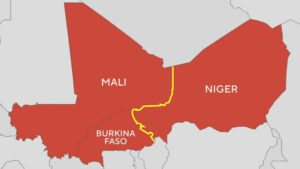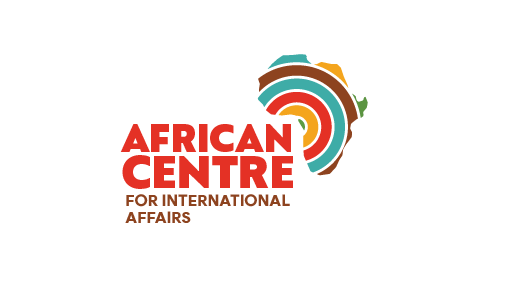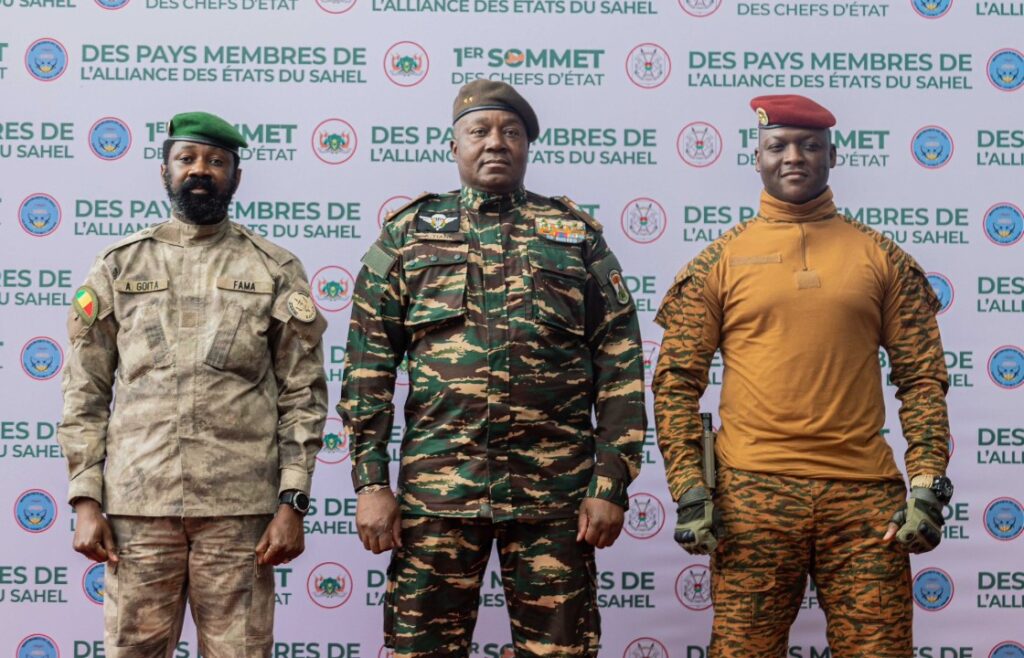By Joseph BOATENG and Shadrach BAA-NAA KUNDI
Global institutionalism in Africa has faced variants of challenges over the past decade; at the Regional Economic Community (REC) level, these institutions have navigated through different challenges. The most recent among them was the announcement of the departure of three ECOWAS members—Burkina Faso, Mali and Niger—on January 28, 2024. This came as a surprise to many on the continent, with several analysing its implication on multilateralism and regional integration in Africa. On January 29, 2025, the ECOWAS confirmed the departure of the three members from the REC, forming their own union known as the Alliance of Sahel States (AES) on 16 September 2023.[1]
In order to promote economic cooperation among member states in the direction of economic development, ECOWAS was established in 1975. But as time went on, the organisation’s mandate grew to encompass political and security cooperation, with the need for regional peace and security emerging as a key component of ECOWAS’s operations. This demonstrated the relationship that exists in the region between political stability, economic growth, and security.[2] Therefore, the ECOWAS Supplementary Protocol on Democracy and Good Governance of 2001 and the Declaration of Political Principles of 1991 were established to fortify the regional organisation’s response to encourage good governance, maintain peace and stability, discourage military interventions, and oversee the transition of military regimes into democracies. The reasons presented by the AES members demonstrate a deviation from the core values that led to the formation of the ECOWAS. This is reflected by the growing anti-French moves by the three governments, who have all severed military ties with France and seek to disenable all Western ties to their nations.
Reasons for Departure
In a joint release on 28th January 2024, Burkina Faso and Mali declared their withdrawal from ECOWAS. The three states have advanced basically three reasons for their withdrawal from the regional body.

Firstly, in a statement, the trio stated that ECOWAS was insensitive to the fight against terrorism in the Sahel, citing that ECOWAS has not been supportive in the ‘existential fight against terrorism and insecurity.’[3]
Secondly, the three states have also argued that the ECOWAS has deviated from the principles that led to the formation of the organisation, citing that the organisation is now controlled by foreign powers and that the organisation has also betrayed the ideals of the founding fathers directed and championed by Pan-Africanism and has now become an existential threat to its member states and citizens.[4]
Inclusively, the juntas have found the imposition of sanctions on the coup governments as ‘illegal, illegitimate, inhumane and irresponsible sanctions’ that have worsened their plight, such as their withdrawal of their membership to the ECOWAS. [5]
In a press release by ECOWAS announcing the formal departure of the three countries, some crucial temporary measures have been made by the union to ensure that the departure of the three does not lead to a rupture of relations between member states and the departed states. Among such measures includes member states of the ECOWAS recognizing the passport and other national identities of citizens of the three countries with the logos of the ECOWAS. Also, goods and services from the three countries will still be recognised in line with the ECOWAS Trade Liberalisation Scheme (ETLS) and investment policy.
Citizens of the three countries will still enjoy the privileges of visa-free movement, residence and establishment among ECOWAS members in accordance with the ECOWAS protocol until further decisions are made on that.
Further, ECOWAS states that full support will be given to ECOWAS officials from the AES in the course of their work with ECOWAS.[6]
Transitional measures
The measures put in place by the ECOWAS is to ensure a smooth transition while it reflects on how to restructure it frameworks to continue on it mandate as well as reducing the impact that the departure of the former members may bring on the union. There have, however, been some preparations by the AES for ensuring a stronger tie while holding back on their sovereignty.
Therefore, on September 16, 2023, the alliance (AES) signed a charter that established a model for regional integration and military collaboration. The Charter enjoins the three member states to:
Prevent, manage, and resolve any armed rebellion or threat to territorial integrity and sovereignty.
Prioritise peaceful and diplomatic channels while reserving the right to use force if necessary.
As part of their preparatory measures to leave the ECOWAS the AES announced the introduction of their Sahel-wide passport which took effect January 29, 2025, the day in which their withdrawal from the ECOWAS became effective. This is to establish an independent identity among the AES members and to ensure ease of mobility among member states. The diplomatic tension notwithstanding, some member states, including Ghana and Benin, have expressed the desire to continuously engage with them, with Ghana appointing a special envoy to the AES.
Implications of AES Departure
The departure of the AES has implications for their member states and ECOWAS member states. In terms of economics, the GDP of the three members amounts to 9.22% ($70.16 billion) of the GDP of all ECOWAS member states, which amounts to $761 billion as of 2022.[7] The three members hold 6.29% of the capital of the ECOWAS Bank for Investment and Development (EBID); the bank, as of the end of the 2023 financial year, had invested $4.17 billion into the region. Despite the small market size of the trio comparatively, their departure may reduce the market size of the ECOWAS while its citizens may subsequently be cut off from the trade incentives enjoyed while being a member. Considering the landlocked nature of the three countries, their cost of access to maritime trade may increase considerably. Differently on the side of the ECOWAS, most projects, especially transport that transverses through their territory, may be jeopardised if there are no sound diplomatic arrangements to ensure the continuation of such projects that seek to enhance the mobility of citizens of member countries of the ECOWAS. The fight against insurgency is complex, but the contained geostrategic nearness of the three states suggests they may be able to move freely and lend each other help. Due to its strategic location, Niger acts as a security buffer for terrorist groups; yet, if ECOWAS does not cooperate with the AES on security, insurgency groups may be able to freely move about into different countries, including Nigeria and Benin, expanding their network of operations.
The Position of AfriCIA
It is the strongest conviction of AfriCIA that the actions of the AES members is a rolling back of multilateralism holding the principle that multilateral organizations like ECOWAS are as strong and powerful as states will permit them through the principle of consent within customary international law. Their departure questions the entire idea of African Unity where the solidarity of togetherness towards amalgamating the continent have become diluted by perceived foreign elements questioning the imperative of uniting the frontiers of African countries.
Our position is that with the diversified nature of partners within the African continent, partnership-pragmatization should guide the choices of states and that should not infiltrate into the business of multilateral organizations. The ECOWAS therefore requires an objective and independent lens of focus into solidifying its functional units of member states offering solutions that addresses the challenges faced by member states and applying its protocols objectively to avoid suspicion among member states. ECOWAS needs a nuanced understanding of the challenges member states
AfriCIA believes that ECOWAS must strengthen its functional units of member states, offer solutions that deal with the problems member states face, and apply its protocols in a way that doesn’t cause suspicion among member states, it needs a neutral and objective lens. ECOWAS needs a nuanced understanding of the challenges member states face, therefore not falling into the trap of a one-size-fits-all approach in assisting member states in resolving their challenges.
Further, AfriCIA perceives colonial imperatives within the functioning of the ECOWAS, which requires critical assessment for states to be able to entrust some aspect of their sovereignty to multilateral organisations to exercise for the collective good of the sub-region. This further sends a signal to other RECs on the continent to learn from in order to remain relevant to the course of ensuring African peace and security, trade facilitation and the deepening of regionalism towards developing the local economies of African countries.
It is further AfriCIA’s conviction that the AES members are better off belonging to the ECOWAS than isolating themselves; the sub-region faces collective challenges that require collective action to resolve. Threats by terrorist networks along the sub-region is one that no state can claim immunity to within West-Africa as a result isolating to deal with it may rather prolong the existence of the threat under circumstances where partners to the call are divided in plan, strategy and action. Inclusively, globalisation has proved that the amalgamation of market frontiers within contemporary times serves the interest of developing economies in order for them to develop local industries that can become resilient and strong to compete with those in developed economies, that the imperative towards a common market and subsequently into a monetary union is needed within the next decade towards accelerating development and industrialisation drives, therefore requiring a stronger unification among member states within the subregion.
Conclusion
The formal departure of Burkina Faso, Mali and Niger from the ECOWAS underscores the growing sentiments about the declining nature of liberal democracy in Africa. The formation of a new union by these three states has no particular mechanisms towards democracy, considering that the three countries are military governments. Interestingly, for multilateralism, the question of it clawing back from creating a collaboration towards a unified global system has been questioned by the quest for national sovereignty by states. The formation of the AES presents a strong resentment from French postcolonial rule and an exhibition of a new independence in which nationals of the AES celebrated their departure from the ECOWAS on January 28, 2024.
[1] [1] https://www.cddwestafrica.org/blog/alliance-of-sahel-states-aes-yet-another-regional-bloc-in-west-africa/
[2] Schraeder, P. J. 1995. Understanding the” Third Wave” of Democratization in Africa.
[3] BBC News. 2024. ECOWAS: Niger, Mali and Burkina Faso quit the West African bloc. January, 2024. Accessed: 13/02/2024. https://www.bbc.com/news/world-africa-68122947
[4] BBC News. 2024. ECOWAS: Niger, Mali and Burkina Faso quit the West African bloc. January, 2024. Accessed: 13/02/2024. https://www.bbc.com/news/world-africa-68122947
[5]file:///Users/mac/Downloads/OK_Press%20Statement%20_%20ECOWAS%20_%20Withdrawal%20BURKINA_MALI_NIGER.pdf
[6] The Conversation. 2024. Mali, Burkina Faso and Niger want to leave ECOWAS. A political scientist explains the fallout. February 2024. Accessed: 12/02/2024. https://theconversation.com/mali-burkina-faso-and-niger-want-to-leave-ecowas-a-political-scientist-explains-the-fallout-222388.
[7] Countryeconomy.com. 2022. ECOWAS – Economic Community of West African States. Accessed: 13/02/2024. https://countryeconomy.com/countries/groups/economic-community-west-african-states.

